| Università di Pavia | ||||
Maria Gabriella Pavesi National and Local coordinator |
Maria Pavesi is full professor of English language, Linguistics and Translation at the Department of Humanities of the University of Pavia. She graduated at the University of Bologna, was awarded a one-year Fulbright scholarship and received a Master of Science in Multilingual/Multicultural Education from Florida State University. She obtained a Ph.D. in Linguistics from the University of Edinburgh (1986) and the University of Pavia (1990). Her research has addressed various topics in English applied linguistics and has focussed on second language acquisition, the English of science, English language learning through the media, film language and corpus-based audiovisual translation studies, more recently with an emphasis on deixis and (im)politeness. In all these fields she has published widely, both nationally and internationally. She is the co-author of the volume Informal Contact with English. A Case Study of Italian Postgraduate Students (Edizioni ETS, 2020, open access), the author of “Corpora and the language of films: Exploring dialogue in English and Italian” (Routledge 2022) and co-editor of the special issue English in Audiovisual Translation Research: Synchronic and diachronic perspectives (TEXTUS 2021). Since 2005 she has coordinated the development of the Pavia Corpus of Film Dialogue, now comprising about 1,000,000 words of Anglophone and Italian dialogue transcriptions. Maria Pavesi has been an invited speaker at several Italian and European universities, a funded visiting scholar at the Universities of Stockholm, Konstanz, Birmingham, Manchester, East Anglia and Murcia and Visiting Professor at the University of Roehampton. Maria Pavesi has had a leading role in several government-funded (MURST/PRIN), EU and international research projects on language learning and CLIL, language corpora, multimodality, dubbing and audiovisual language. She is currently the Principal Investigator of the 2020 PRIN project “The informalisation of English language learning through the media: language input, learning outcomes and sociolinguistic attitudes from an Italian perspective”. | |||
Elena Ballante |
Elena Ballante has a Master’s degree in mathematics and a PhD in Computational Mathematics and Decision Sciences (2021, University of Pavia, Italy). Her PhD thesis was on “Statistical and Machine Learning Models for Neurosciences” (Supervisor: Prof. Silvia Figini). She now holds a postdoc research position at the department of Political and Social Sciences of the University of Pavia. Her primary field of research is Machine Learning and Statistical Learning applied to the biomedical field. Her focus is on studying and developing statistical models, machine learning algorithms and data mining methods, both from a methodological and applied perspective. During her years of research, she has specialized in non-parametric and ensemble models, especially developed in the context of survival analysis. She has also had the opportunity to apply her methodological skills in the context of social sciences (education and socio-economic topics). |
|||
Erik Castello |
Erik Castello (PhD) is associate professor of English language and linguistics at the University of Padua, Italy. His current research interests include (learner) corpus linguistics, discourse analysis, functional linguistics, and stylistics. He has recently examined aspects of written and spoken native and learner English, including the use of pragmatic markers, modal verbs and adjectives, with a view to applying the findings to EFL teaching and assessment. On these topics, he has published several articles in (inter-)national journals and co-edited a volume and a journal issue. He has participated in and contributed to several (inter-)national conferences, and convened the sixth Learner Corpus Research (LCR) conference at the University of Padua (2022). He has been involved in several (inter-)national and local research projects, among which: the Trinity Lancaster Corpus Early Access Data Grant (2017-2019); “The sociopragmatics of written speech acts” (2018-2020); and LONGDALE (2010-2016). He has served as peer reviewer for the LCR conferences since 2015, as well as for various (inter)national journals (e.g., “World Englishes”, “Nordic Journal of English Studies”). He was visiting lecturer at various institutions: e.g., the University of Melbourne, Australia (2011), Universität Bremen, Germany (2014), Cardiff University, UK (2016) and the University of Łódź, Poland (2023). |
|||
Tiziana Ciabattoni |
Tiziana Ciabattoni graduated in Physics at the University of Pavia with a theoretical-experimental thesis in Condensed Matter Structure, entitled "Spin correlation in Heisenberg's planar quantum antiferromagnes: a study in CFTD by means of relaxation NMR". With her thesis, Tiziana won the "R. Sala" Study Prize for studies and research on the applications of magnetic resonance and nuclear quadrupole to Solid State Physics. At the same University she obtained a Masters in Materials Science and Technology with the thesis "Structural and magnetic characterization of the solid solution of columbites FexMn1xNb2O6" and a PhD in Physics with the thesis "Study and optical characterization of semiconductor nanostructures III-V", judged "of great interest and originality". She collaborates with numerous research groups in physics and linguistics automating measurement procedures, test administration and data analysis and creating the software for various laboratory instruments and online IT platforms for data collection and analysis. She works in Business Intelligence as Data Architect, Data Analyst and Project Manager at the University of Pavia. |
|||
Camilla De Riso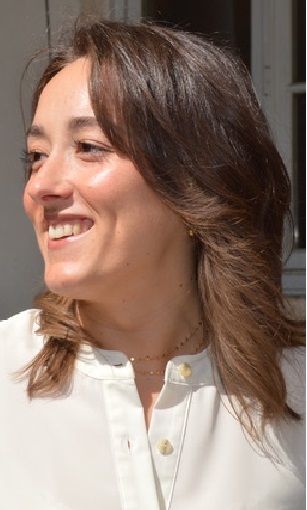 |
Camilla De Riso is postdoctoral research fellow of English at the Department of Humanities, University of Pavia. After a BA in Foreign Languages and Cultures (2016) and an MA in Theoretical, Applied, and Modern Languages Linguistics (2019), she earned her PhD in Linguistics in 2023 from the University of Pavia and the University of Bergamo with a thesis on informal second language learning of English (title: Out-of-the-classroom English input and informal second language acquisition: a longitudinal study of Italian university students). During her studies, she has been visiting fellow at Cardiff University, Karlsruhe University of Education, and University of Malta, where she she had the opportunity to enhance her knowledge in the fields of Content and Language Integrated Learning (CLIL) and quantitative methods in applied linguistics. Camilla De Riso’s main research interests focus on Informal Second Language Learning (ISLL) and English second language acquisition, audiovisual translation (with particular attention to subtitling and dubbing), language learners’ identities, motivations, and attitudes towards the L2, Spoken English, and the theoretical and practical multidimensionality of complexity, accuracy, and fluency (CAF) constructs. |
|||
Maicol Formentelli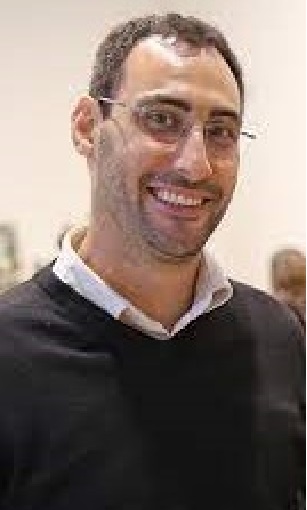 |
Maicol Formentelli is Associate Professor of English Language and Linguistics (s.s.d. L-LIN/12) at the Department of Humanities of the University of Pavia. From 2012 to 2019 he worked as Researcher at the University of Eastern Piedmont (2012-2019), where he taught English and was coordinator of English courses at the Department of Humanities and the University Language Centre. He holds a degree in Theoretical and Applied Linguistics from the University of Pavia (2007) and a PhD in English Linguistics from the same institution (2011). He spent funded study-abroad periods at the University of Konstanz and at the University of Reading and was appointed Visiting Scholar at the University of Melbourne and Gallaudet University, Washington DC. He has taken part in several national and international projects and has done research on a variety of topics in the area of sociolinguistics and pragmatics of English (native and non-native varieties, English Lingua Franca (ELF), academic interactions, address strategies), film dialogue and audiovisual translation from English into Italian (linguistic creativity and complexity, address strategies, the pragmatics of swearing, (im)politeness), with methodologies that include data collection through questionnaires and interviews and the semi-automatic analysis of linguistic data through corpora and databases. |
|||
Elisa Ghia |
Elisa Ghia is Assistant Professor of English at the Department of Political and Social Science, University of Pavia. In 2004 she received a BA in Foreign Languages and Cultures and later an MA in Theoretical and Applied Linguistics (2007). In 2011, she obtained a Ph.D. in Linguistics from the University of Pavia, specializing in English language acquisition and applied linguistics. Elisa Ghia has taught English and English for Specific Purposes at the University for Foreigners of Siena, the University of Eastern Piedmont and the University of Milan. From 2016 to 2021, she was Assistant Professor of English at the University for Foreigners of Siena. She has been visiting fellow at the University of Turku, Katholieke Universiteit Leuven, the University of Melbourne and Michigan State University. In 2017 she obtained the National Scientific Qualification to function as an associate professor of English. Elisa Ghia’s research focuses on English as a Foreign Language learning, spoken English genres and use, audiovisual translation (with special attention to dubbing and subtitling), quantitative methods in applied linguistics and English corpus linguistics. She is currently working on the acquisition of English in informal, out-of-school contexts. |
|||
Cristina Mariotti |
Cristina Mariotti is Associate Professor in English Language in the Department of Political and Social Sciences at the University of Pavia, Italy. She studied Modern Languages and Literature (Major: English and German) at the University of Pavia. She taught English and German and did research in English as a Foreign Language (EFL) teaching methodology. She got her State Teaching Qualification in English and her Ph.D. in Linguistics from the University of Pavia. Her dissertation was on Negotiated interactions and negative feedback in English-medium instructional settings. She has done research in the cognitive processes involved in the content-based learning of English and has published on the use of audio visual materials in language learning with a focus on the learning of English as a foreign language, on Content and Language Integrated Learning (CLIL) and on English as a Medium of Instruction (EMI) in academic settings, with particular reference to internationalisation programmes. She is currently investigating the features of input in EMI and the role of motivation in foreign language learning. |
|||
Silvia Monti |
Silvia Monti is Professor of English language at the University of Pavia. Her research interests relate especially: to the presence and functions of code-switching and code-mixing as crucial markers of ethnolinguistic identity in American and British multilingual/multicultural audiovisual products belonging to different film genres and to the translation strategies relevant to such language alternation practices in the films’ Italian dubbed versions; to the audiovisual translation of regional and social dialects, slang and Cockney Rhyming Slang in the Italian dubbed version of British and American films; the varieties of English and their use in contemporary spoken language. Further research interests concern the use of digital resources (e.g. audiovisual products, multimedia, new information technologies, social networks, instant messaging systems), both online and offline, as efficient tools for English language teaching and learning. Among her publications: (2023). “’Hola, Señorita. Do You Like Gazpacho?’ Challenges and Trends in the Audiovisual Translation of Linguacultural Otherness in American Multilingual Animated Films and Their Italian Dubbed Version”. In Languages 8 (116). https://doi.org/10.3390/languages8020116; (2022) “Overcoming Linguacultural Barriers in Screen Translation: Cross-linguistic and Cross-cultural Encounters in the Italian Dubbed Versions of Polyglot Films”. In Journal of Audiovisual Translation, 5(1), 22-48; (2019) “Cooking up flavours of linguistic identity in British and American multiethnic films and their Italian dubbed version”. In María Pérez López de Heredia & Irene de Higes Andino (eds.) “Multilingualism and representation of identities in audiovisual texts / Multilingüismo y representación de las identidades en textos audiovisuals”, MonTI, Special issue 4, 199-228; (2018) Multilingualism on the screen. Code-switching in European and American films and their Italian dubbed version, Pavia: Clu; (2008) «Centri Linguistici virtuali: le risorse in rete per l'apprendimento delle lingue straniere», Puntoedu - Indire, http://puntoeduri.indire.it/lingue/; (2008) «Le nuove tecnologie informatiche multimediali nella didattica delle lingue straniere», Puntoedu - Indire, http://puntoeduri.indire.it/lingue/; (2000) Internet per l'apprendimento delle lingue, Torino: Utet Libreria; (1997) La multimedialità nell'insegnamento della lingua inglese, Milano: Mimesis. |
|||
| Università di Catania | ||||
Raffaele Zago Local coordinator |
Raffaele Zago (PhD in English linguistics from the University of Pavia; National Scientific Habilitation) is a senior assistant professor at the University of Catania, Department of Humanities, where he teaches English language and linguistics in two BA degree courses (“European, Euro-American and Oriental Languages and Cultures”; “Sciences and Languages for Communication”). He has conducted research in the fields of English applied linguistics, corpus linguistics and discourse/register analysis, with a special focus on the quantitative and qualitative analysis of several spoken English features (e.g. vocatives, colloquiality, questions, frequent lexico-grammatical clusters, expressivity) and with particular attention to English telecinematic dialogue. In these areas, he has published two monographs (2016, 2018), various articles/chapters (e.g. in edited books published by John Benjamins and Routledge), as well as a periodically updated bibliography on telecinematic linguistics (co-authored with Monika Bednarek). He is co-editor of the book Language, Expressivity and Cognition (Bloomsbury, 2023). |
|||
Cristina Arizzi |
Cristina Arizzi holds a PhD in English and American Studies from the University of Catania, Italy and is currently assistant professor in English language and translation at the Department of Humanities at the University of Catania, Ragusa Campus. Her interests include sociolinguistics, translation studies, multimodal studies, intersemiosis and resemiotisation. Her long-standing interests in American studies have led to the publication of several papers on American political discourse focusing on social networks and political campaigns, presidential genres, genre evolution and hybridization. She has participated in several international projects, including the 2021 Erasmus + KA226 project - Partnerships for Digital Education Readiness in the field of Higher Education – entitled “Open Innovative Resources for High Quality Inclusive Digital Higher Education”, and is currently a member of the Catania Unit of the PRIN 2020 project entitled “The Informalisation of English Language Learning through the Media: Language Input, Learning Outcomes and Sociolinguistic Attitudes from an Italian Perspective”. |
|||
Iain Halliday |
Iain Halliday is associate professor of English Language and Translation in the Department of Humanities at the University of Catania. His research interests, which currently focus on links between language and music, have included Translation Studies. In 2010 Fairleigh Dickinson University Press published his Huck Finn in Italian, Pinocchio in English: Theory and Praxis of Literary Translation and he has also worked as a literary translator. |
|||
Irene Ranzato |
Irene Ranzato holds a PhD in Translation Studies from Imperial College London and is associate professor of English language and translation at Sapienza University of Rome (Italy). Her research interests focus on audiovisual and intersemiotic translation, on the regional and social varieties of English and on the intersections between language and ideologies in the analysis of fictional dialogue. Among her publications: the books Translating Culture Specific References - The Case of Dubbing (Routledge, 2016) and Queen’s English?: Gli accenti dell’Inghilterra (Bulzoni, 2017). She co-edited Linguistic and Cultural Representation in Audiovisual Translation (Routledge, 2018), Reassessing Dubbing: Historical Approaches and Current Trends (Benjamins, 2019) and The Dialects of British English in Fictional Texts (Routledge, 2021). |
|||
Massimo Sturiale |
Massimo Sturiale is associate professor of English Language and Translation at the University of Catania, in Ragusa. His major research interests and publications cover issues in English historical sociolinguistics, lexicography (mainly pronouncing dictionaries), phonology and Elizabethan translations from Italian. He co-edited, with Joan Beal and Carmela Nocera, Perspectives on Prescriptivism (Peter Lang, 2008) and, with Joan Beal, he was guest-editor of “Prescriptivism and Pronouncing Dictionaries: Past and Present”, a Special Issue of Language and History (55/1, 2012). In 2014, with Giovanni Iamartino and Carmela Nocera, he co-edited English Words in Time (Polimetrica International Scientific Publisher). |
|||
| Università di Pisa | ||||
Silvia Bruti Local coordinator |
Silvia Bruti PhD in English from the University of Pisa, is a Full Professor of English Language and Linguistics at the University of Pisa and Director of the University Language Centre. She also directs the Master in Specialised Translation from English into Italian, organised jointly by the Universities of Pisa and Genova and run by ICoN (Italian Culture on the Net). She has conducted research in the fields of text linguistics, (historical) pragmatics and applied linguistics, with a particular focus on corpus linguistics, translation (especially audiovisual) and the teaching of English. She has published widely in these areas and has participated in numerous national and international conferences. She has edited (also in collaboration) several collections, on reformulation and paraphrase (2004), lexicography and translation (2009), the recent developments of audiovisual translation in Europe (2012), subtitling (2015), the use of corpus linguistics in translation (2013), identity and translation (2014) and stylistics and idiolect (2016). She has participated in several national (funded by MURST, then PRIN projects) and international (e.g., COMOLTE Consortium for Modern Language Teacher Education, and “Tapping the Power of Foreign Language Films” at the University of East Anglia) funded projects on topics such as corpora, mediation, language teaching, learning and evaluation, knowledge dissemination and multimodal resources. Her research has recently focused on cross-cultural pragmatics (English vs Italian) and the translation of audiovisual texts, with particular attention to the translation of compliments, conversational routines and vocatives in interlingual subtitles and dubbing. Her works in these areas include a monograph on the translation of politeness (2013) and a co-authored volume on interlingual subtitling (2017). | |||
Gloria Cappelli |
Gloria Cappelli is Associate Professor of English Language and Linguistics at the University of Pisa. Her research focuses on semantics and pragmatics, ESP and multimodal discourse, and second and foreign language acquisition in learners with and without dyslexia. She has published in national and international journals and collected volumes. She has authored and edited books on English verbs of cognitive attitude, lexical semantics, tourism communication and the impact of dyslexia on language skills. Her most recent publication is the volume A Linguistic Approach to the Study of Dyslexia (2022 Multilingual Matters), coedited with Dr. Sabrina Noccetti. | |||
Denise Anne Filmer |
Denise Filmer is assistant professor of English language and translation at the University of Pisa where she teaches ESP and critical discourse studies at undergraduate and postgraduate level in the Department of Political Science. She holds a PhD in Translation Studies (Durham University UK). Her research focuses on ideology in translation, political discourse, journalistic translation, audiovisual translation, gender and sexuality in media discourse, intercultural mediation, and cross-cultural pragmatics. She has authored two monographs (Translating Racial Slurs. Last Linguistic Taboo and Translational Dilemma 2012; Italy’s Politician’s in the News. Journalistic Translation and Cultural Representation 2021) and numerous contributions in international journals. Recent publications include “Reading the news: A pilot study on Italian students’ understanding of English journalistic texts” (2022), and “‘As my Right Honourable Lady knows…’: A Multimodal Critical Discourse Analysis of Prime Minister’s Question Time Comparing Margaret Thatcher and Theresa May” (2022). She is peer reviewer for several international journals and is on the Editorial Board of Perspectives. Studies in Translation Theory and Practice, and Cambridge Scholars Publishing. | |||
Silvia Masi |
Silvia Masi is Associate Professor of English Language and Linguistics at the Department of Philology, Literature and Linguistics of the University of Pisa. She holds a Ph.D. in English Linguistics from the same University, where she has been teaching undergraduate and graduate courses since 2004. She currently holds courses for the Degree Programmes in Foreign Languages and Literature, Digital Humanities and for the Master Course LINGTRA (Linguistics and Translation). Her scientific interests lie in the fields of lexical semantics and pragmatics, text linguistics and discourse analysis, scientific popularisation and translation. She authored two monographs, Reporting verbs: A lexico-pragmatic account (2008) and Studies in Lexical Contrastive Semantics: English vis-à-vis Italian Spatial Particles (2011). Her other contributions have appeared in national and international journals and in collective research volumes, covering, for example, formulaic language in film dubbing, culture-bound items in dubbing and in the translation of children’s literature, and metadiscourse in scientific popularisation. More recent research centres on the role of multimodality in popularisation discourse, especially via TED Talks and non-fiction for children, and in the translation of the latter from English into Italian. | |||
Elisa Mattiello |
Elisa Mattiello is Associate Professor of English Language and Linguistics at the Department of Philology, Literature and Linguistics (University of Pisa). She holds a Ph.D. in English Linguistics from the same University, where she teaches undergraduate courses of ESP and English linguistics. Her research focuses on English word-formation and lexicology, with particular attention to the creative mechanisms that are used to coin new words in English. In these areas, she has published extensively in leading journals and volumes. She also authored the monographs An Introduction to English Slang (Polimetrica, 2008), Extra-grammatical Morphology in English (De Gruyter, 2013), Analogy in Word-formation (De Gruyter, 2017), Linguistic Innovation in the Covid-19 Pandemic (Cambridge Scholars Publishing, 2022), and Transitional Morphology (Cambridge University Press, 2022). She serves as reviewer for numerous international journals and is currently a member of the Editorial Boards of the International Journal of English Linguistics, International Journal of Language and Linguistics, and Cambridge Scholars Publishing. | |||
Sabrina Noccetti |
Sabrina Noccetti is Assistant Professor of English Language and Linguistics at the Department of Philology, Literature and Linguistics of the University of Pisa, where she teaches “English Language” at the Bachelor’s degree course of Humanities and “Technologies and Methodologies of Foreign Language Teaching: English” at the Master degree course of Euro-American Languages, Literatures and Philologies. She holds a PhD in Morphology and Psycholinguistics from the University of Vienna (Austria). Her research focuses primarily on First and Second Language development with particular reference to morphological acquisition in children and adult learners. Recently, she has started to examine the potential of new teaching methodologies of e-learning and CLIL practice for language learning. She has participated in an international project on Pre- and Proto-morphology in Language Acquisition, a research financed by the Austrian Government and coordinated by Prof. Wolfgang Dressler, to investigate on the acquisition of first languages in a crosslinguistic perspective. She is a co-coordinator of a project on Dyslexia and Language Learning, promoted by the Linguistic Centre of Pisa University. She authored the monographs Pre- and Proto-morphology in Language Acquisition: An Italian Case Study (PUP, 2002), Morfologia dell’Inglese: Strategie e processi di apprendimento in L2 (Edizioni ETS, 2009), Apprendimento in ambiente CLIL (PUP, 2013), co-authored the volumes Semantics and Morphology of Early Adjectives in First Language Acquisition (Tribushinina, Voeikova, Noccetti (eds.), Cambridge Scholars, 2015), A Linguistic Approach to the Study of Dyslexia (Cappelli, Noccetti (eds.), Multilingual Matters, 2022). She is the author and co-author of various papers published with international and national Publishing houses. | |||
Giuliana Regnoli |
Giuliana Regnoli, Ph.D. University of Naples “L’Orientale” and University of Heidelberg, is a research fellow in English Language and Linguistics at the University of Pisa and an affiliated post-doc researcher at the University of Regensburg, Germany. Her research interests include sociophonetics, language attitudes, perceptual dialectology, and World Englishes. Her monograph Accent Variation in Indian Varieties of English: A Folk linguistic Study (Frankfurt: Peter Lang) investigates language attitudes, ethnic identities and metalinguistic awareness in Indian diasporic speech communities located in Germany. She is currently working on the phonological acquisition of English as a second language in Cameroon with a special focus on children. | |||
Nicoletta Simi |
Nicoletta Simi is a Research Fellow (RTDa) at the Department of Philology, Literature and Linguistics at the University of Pisa. Before her current post, she was a Postdoctoral Research Fellow at the Department of Psychology of the University of Tübingen, Germany. She holds a PhD in English linguistics from the Department of Philology, Literature and Linguistics at the University of Pisa. Her interests involved the development of a comprehensive understanding of key phenomena that are at stake in reading comprehension processes. Her PhD research project was centred on the study of these processes in typically-developing young adults and in young adults with dyslexia speaking English as L1 and L2. She gives further attention to the underlying general processes such as cognitive processing speed, working memory and motivational / anxiety aspects of language use. She also investigated how conflicts of linguistic nature are detected, monitored and adapted in L1 speakers of English and German. Currently, she deals with lexical ambiguity and world knowledge violations. She is reviewer for Frontiers in Communication- Multimodality of Communication and for The International Journal of English Linguistic. | |||
Gianmarco Vignozzi |
Gianmarco Vignozzi, PhD in English Linguistics, is a Research Fellow at the Department of Philology, Literature, and Linguistics at the University of Pisa. His research interests encompass corpus-assisted discourse analysis applied to media discourses and specialized English, as well as audiovisual translation through dubbing. His latest publications include “Embedding Oral Communication in Law Firm Websites: A Study on Identity Construction through Person Pro-forms in Attorneys’ Video FAQs” (Textus, 2022), “On the Role of Gestures in the Comprehension of Phrasal Verbs and Idiomatic Expressions in English: A Case Study Comparing the Performance of Learners with and without Dyslexia” (Lingue e Linguaggi, 2022). | |||
| Università del Salento | ||||
Francesca Bianchi Local coordinator |
Francesca Bianchi holds a PhD in linguistics from Lancaster University (UK). She is associate professor of English language and linguistics at the University of Salento (Lecce, Italy), where she teaches interpreting and audiovisual translation in undergraduate and graduate degree courses. Her research interests revolve around the use of technology in linguistic research and teaching. She specialises in corpus linguistics – applied to genre analysis and AVT – and teaching through new technologies. She has long been involved in the creation of pedagogical units using multimedia authoring systems and in the development of computerized interactive teaching environments. She has over 60 publications focusing on the use of technologies in either language learning or linguistic research, and has organized several international conferences on linguistics and/or translation. |
|||
Sara Gesuato |
Sara Gesuato holds a PhD in linguistics from the University of California at Berkeley and another one from the University of Padua. She is associate professor at the department of Linguistic and Literary Studies (Padua University), where she teaches English language and linguistics in undergraduate and graduate degree courses. Her research fields include pragmatics, genre analysis, and corpus linguistics. Her most recent research has investigated pedagogical applications of the qualitative-quantitative analysis of oral and written initiating and responding speech acts. She has organised various international conferences and published over 100 works. |
|||
Serena Ghiselli |
Serena Ghiselli is a post-doctoral research fellow at the University of Salento (Lecce, Italy), where she works on a project about the informalisation of English language learning. She holds a PhD from the Department of Interpreting and Translation (DIT) of the University of Bologna at Forlì. The PhD project was an interdisciplinary study on working memory and selective attention in interpreting. During a two-year post-doctoral research grant at DIT she worked on a psychometric framework to test working memory, selective attention and split attention in interpreting-specific tasks. Her research interests focus on the cognitive processes of interpreting, interpreting between English and Italian, English language teaching and corpus linguistics applied to translation and interpreting. |
|||
Paola Leone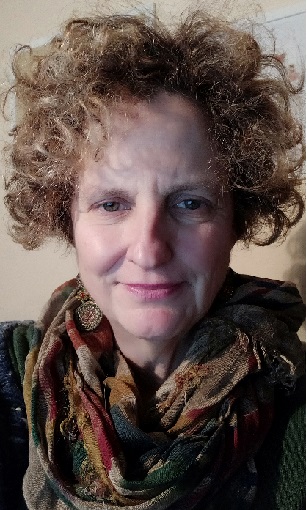 |
Paola Leone is associate professor of Foreign Language Teaching, Teaching Italian as L2 and Technology in Language Teaching. Her areas of research are plurilingual education, usage-based approaches and language teaching and learning in technology enhanced environments, particularly those based on telecollaboration programs. In this field, she has more than 10 years’ experience, carrying out research on teletandem. On this topic she has recently published a book. She participated to the European project on intercomprehension MIRIADI (Mutualisation et Innovation pour un Réseau de l'Intercompréhension à Distance) and she has coordinated the research unit of the University of Salento for the EU funded project ‘Lectǔrĭo +’ (Lecture et comprehension transfrontalières unies par un réseau de l’intercompréhension ouvert aux plus jeunes). |
|||
Sabrina Liberti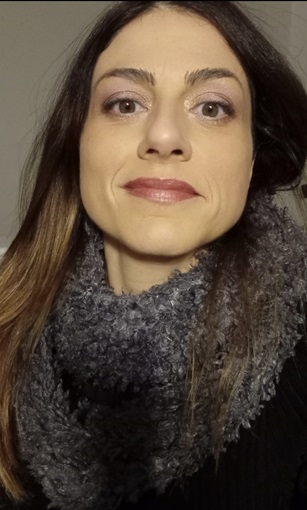 |
Sabrina Liberti is a research fellow at the Department of Humanities, University of Salento. After a University Diploma for Translators and Interpreters (2002), she obtained a Bachelor's Degree in Translation and Interpreting (2004) and a Master's Degree in Literary and Technical-Scientific Translation (2008). Subsequently, she attended a Master's degree in Europlanning and Human Resources Training. She has participated in several training courses abroad. Her interests range from general pedagogy to educational psychology and focus on the teaching of English L2, with a particular emphasis on innovative and informal teaching methodologies, specializing in preparation for language certifications.
|
|||
Elena Manca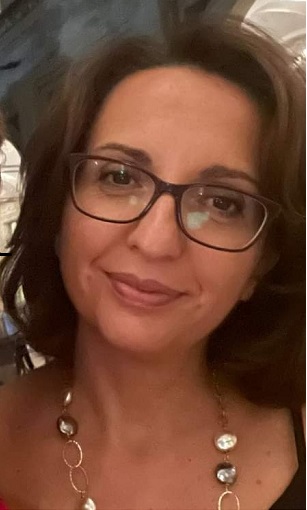 |
Elena Manca is an associate professor of English Linguistics, Language and Translation at the University of Salento (Lecce, Italy) and teaches ‘English Language and Linguistics’ and ‘Translation into/from English and Italian’ at the BA in Linguistic Mediation of the University of Salento. Her areas of research are Corpus Linguistics, specialized languages, cross-cultural studies, translation studies and language teaching. In particular, she has extensively investigated the linguistic, visual and cultural features of tourism discourse by cross-comparing several multimodal tourist texts in English and in Italian produced by a variety of cultures. She has proposed a four-step methodology for the identification of translation equivalents across cultures and she has elaborated the Cultural Communication Grammar framework for the classification of cultural features through the analysis of language and visuals. She has also developed language-teaching materials for familiarizing students with Corpus Linguistics and with the notion of extended units of meaning and functionally complete units of meaning which are at the basis of the interplay between language and meaning. She is currently working on figurative language in English and Italian tourism texts. |
|||
Emanuela Paone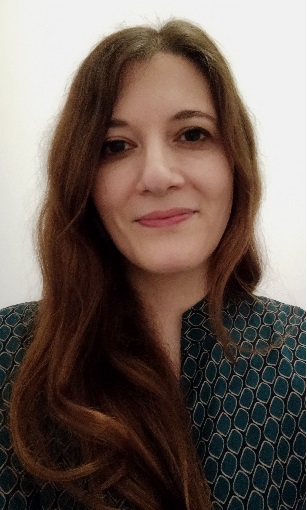 |
Emanuela Paone is junior assistant professor at the University of Salento (Lecce, Italy). She achieved her PhD in 2017 at University of Calabria with a thesis on vocal communication of emotion in a second language. Currently, she is carrying out a research project, funded by the Regione Puglia (Research for Innovation, REFIN funds), whose goal is to enhance communicative foreign language skills of students and workers in Tourism sector through telecollaboration. Her research interests focus on the acquisition of socio-pragmatic and phonological competences in L2 context. Recently, she has investigated the prosodic and socio-pragmatic appropriateness of expressive speech acts like complaints and apologies performed by learners of Italian. She has attended several national and international conferences in the field of linguistics and language teaching and she has authored different papers and books related to these fields. |
|||
| Università San Raffele di Roma | ||||
|
Liviana Galiano
|
Liviana Galiano is researcher in tenure-track at the San Raffaele University of Rome. She holds a BA in Modern Languages Linguistics and Cultural Mediation (2012) and an MA in Theoretical, Applied and Modern Languages Linguistics (2014). In 2020, she earned her AHRC-funded Ph.D. in English Linguistics from the University of Lancaster (UK) with the thesis "Forms and Functions of Second Person Plural Forms in World Englishes: a Corpus-based Study". As former research fellow at the University of Pavia (2020-2023), she has worked on the expansion and tagging of the Pavia Corpus of Film Dialogue. She has also conducted research on the pragmatic aspects of film dialogue (e.g. pragmatic markers, speech acts and the expression of attitude) and the grammatical complexity of film dialogue as input for L2 learning. Liviana Galiano's main research interests include English corpus linguistics, languages of new media, pragmatics, grammatical complexity, English Lingua Franca (ELF). |
|||



